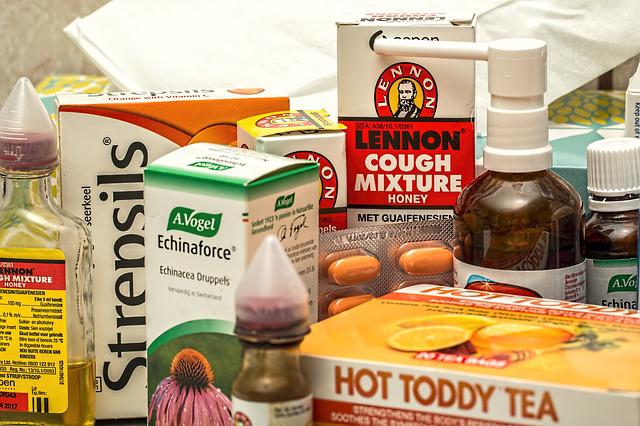People in the US are somewhere on the spectrum of feeling they’ve been informed, misinformed, inoculated, intimidated, masked, stressed, shamed, tested, boosted or frankly terrified by the specter of COVID-19 for the last three years. Many people are experiencing ‘Covid-Fatigue’ as statistics become so overwhelming, they lose their relevance to us individually. Skepticism and mistrust are rampant regarding testing, vaccines and boosters and are being coupled with reports of double standards and financial gains by those purported to be experts and advocates for our national welfare. It is disappointing that trusting science has become subjective and an evening news lead-in. National headlines, news programs or agendas aside, people are still sick. But with exactly what? Let’s try to differentiate between them. I am going to try to break this down into manageable bits of information.
SYMPTOMS
A cold can cause a runny or stuffy nose, sneezing, sore throat, cough and fatigue. It can diminish your ability to taste or smell. Generally, these symptoms appear after 1-3 days of exposure. COVID patients can experience all of those in addition to fever, respiratory difficulties, significant fatigue, body aches, nausea, diarrhea and a very noticeable change in taste and smell. Other less common symptoms include rashes, conjunctivitis, chills, dizziness, insomnia, anxiety, and depression.
Adding Influenza (Flu) to the mix adds to the confusion as it mimics most symptoms in nearly every category with the exception of loss of taste and smell. Fevers with the Flu are generally higher (100-102F) and can linger 3 to 4 days. With Flu, symptom onset is usually quite abrupt unlike COVID or the common cold which are more gradual.
TRANSMISSIONS
Colds, Covid Spectrum virus and the Flu are all spread though person-to person contact generally through some form of oral contact. Enter Masks and Social distancing into everyday life. Cold and Flu viruses can survive on surfaces or things for roughly 24 hours. Covid and Flu can be transmitted to others even before your own symptoms emerge, making it even more tricky. In the case of Covid, transmitting people may never even have symptoms! Social distancing and masking have shown success in transmission reduction regardless of type of viral infection.

TREATMENT
Colds and the Flu have been around for decades and as such have a wide variety of effective and/or long-standing remedies that have helped us manage our symptoms. Generations have passed on lists of what to do. There are anti-viral medications available by prescription which can reduce symptoms and severity by a few days. COVID treatments are still in their infancy but antiviral drugs like remdesivir, steroidal drugs, monoclonal antibodies and ventilators as breathing aids have all been used. Like the Cold and Flu, over the counter (OTC) treatments are most helpful in managing symptoms and misery.
POTENTIAL COMPLICATIONS
Covidcarries with it a higher risk of complications, long term effects and mortality than Cold or even Flu. Cold and Flu symptoms are usually manageable at home with OTC medications or Grandma’s home remedies. We generally recover with 5-10 days with or without professional medical intervention.
While 80% of Covid patients recover with no hospital treatment, up to 15% require oxygen therapy and 5% become critically ill and need a stay in the ICU. Other complications include sepsis, thromboembolism, organ damage/failure or acute respiratory distress. Many of us know people suffering from ‘Long Covid’ or are ‘Long Haulers’ where the symptoms hang on for months. Most Covid patients recover in 2-6 weeks. There are cases of permanent damage to lungs, chronic fatigue, cardiac damage and neurological issues like dizziness or neuropathy. Mental and emotional health difficulties like depression, loneliness, anxiety and isolation have also been experienced by Covid patients in far greater numbers than the average cold or flu sufferer. Many have likened it to PTSD.
CONCLUSION
We all have friends an family who fit into these categories. Many of us have had one or all or the above viral infections, we have lost friends and family members to these illnesses in the last several years. Frustration is universal but facts, preparation and faith can triumph over fear and unpreparedness. Ultimately a Covid test is the only way to determine which of the above we are experiencing but the willingness to be responsible for our own health care by being responsible for our own health is the safest path to follow. If nothing else, healthcare professionals around the world have proven themselves to be responsive, resilient, innovative, tough, gutsy, proud and here to stay. Thank you.
Here is a handy Symptom Check from Mayo Clinic:
| Symptom or sign | COVID-19 | Cold |
|---|---|---|
| Cough | Usually (dry) | Usually |
| Muscle aches | Usually | Sometimes |
| Tiredness | Usually | Sometimes |
| Sneezing | Rarely | Sometimes |
| Sore throat | Usually | Usually |
| Runny or stuffy nose | Usually | Usually |
| Fever | Usually | Sometimes |
| Diarrhea | Sometimes | Never |
| Nausea or vomiting | Sometimes | Never |
| New loss of taste or smell | Usually (early — often without a runny or stuffy nose) | Sometimes (especially with a stuffy nose) |
Please see the following sources for more information:
Medical News Today Common Cold vs Covid
National Institute of Health (NIH) Flu, Covid, Allergies or Cold
NHS Solutions has been providing Interim Healthcare Leaders to hospitals across the United States for well over a decade. Contact us to discuss the benefits of becoming an Interim Nurse Leader or to begin a search for an Interim Leader to fill a gap in your organization. We cover a broad spectrum of healthcare clinical and non-clinical specialties.
